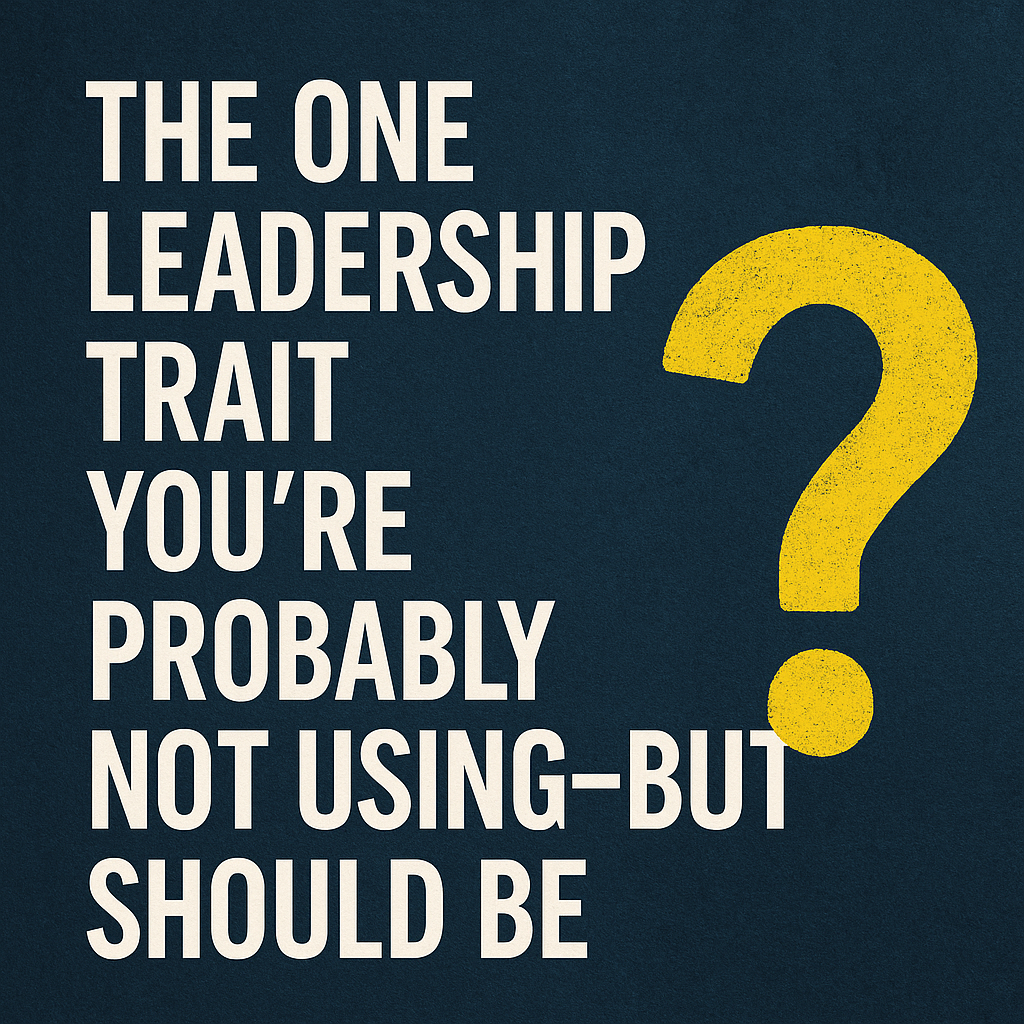|
Helping Companies Rethink, Recover & Refocus on the Future
Call John Grubbs (903) 295-7400
Most leaders aren't curious.
Let's say it plainly, because we've all seen it: leaders who default to telling, fixing, controlling, or judging—far more often than they default to asking.
Why?
Because curiosity is slow, it's uncertain. It doesn't give you that satisfying feeling of control or the rush of authority. Curiosity feels like a detour when you're paid to make decisions and drive outcomes. And let's be
honest—many leaders think that if they ask too many questions, it will make them look weak or unprepared.
So they trade inquiry for assumption, curiosity for confidence. And in doing so, they lose the very thing that makes leadership effective: understanding.
The Real Cost of Not Being Curious
Let's start with the risk of skipping curiosity. When leaders don't ask, don't probe, don't explore the "why" behind what's happening, they often:
- Solve the wrong problems
- Shut down innovation before it starts
- Miss early warning signs of burnout, disengagement, or dysfunction
- Reduce psychological safety on the team
- Erode trust by assuming instead of understanding
Here's a simple truth: people know when you're not curious. They can feel when you've already made up your mind, when you're not actually interested in their perspective, when your questions are loaded and your answers are
ready.
It stings. And it shuts people down.
As Liz Wiseman wrote in Multipliers, "When leaders become the smartest person in the room, they inadvertently shut down the intelligence of others." Curiosity is the...

